Industrial Management, Bachelor of Engineering
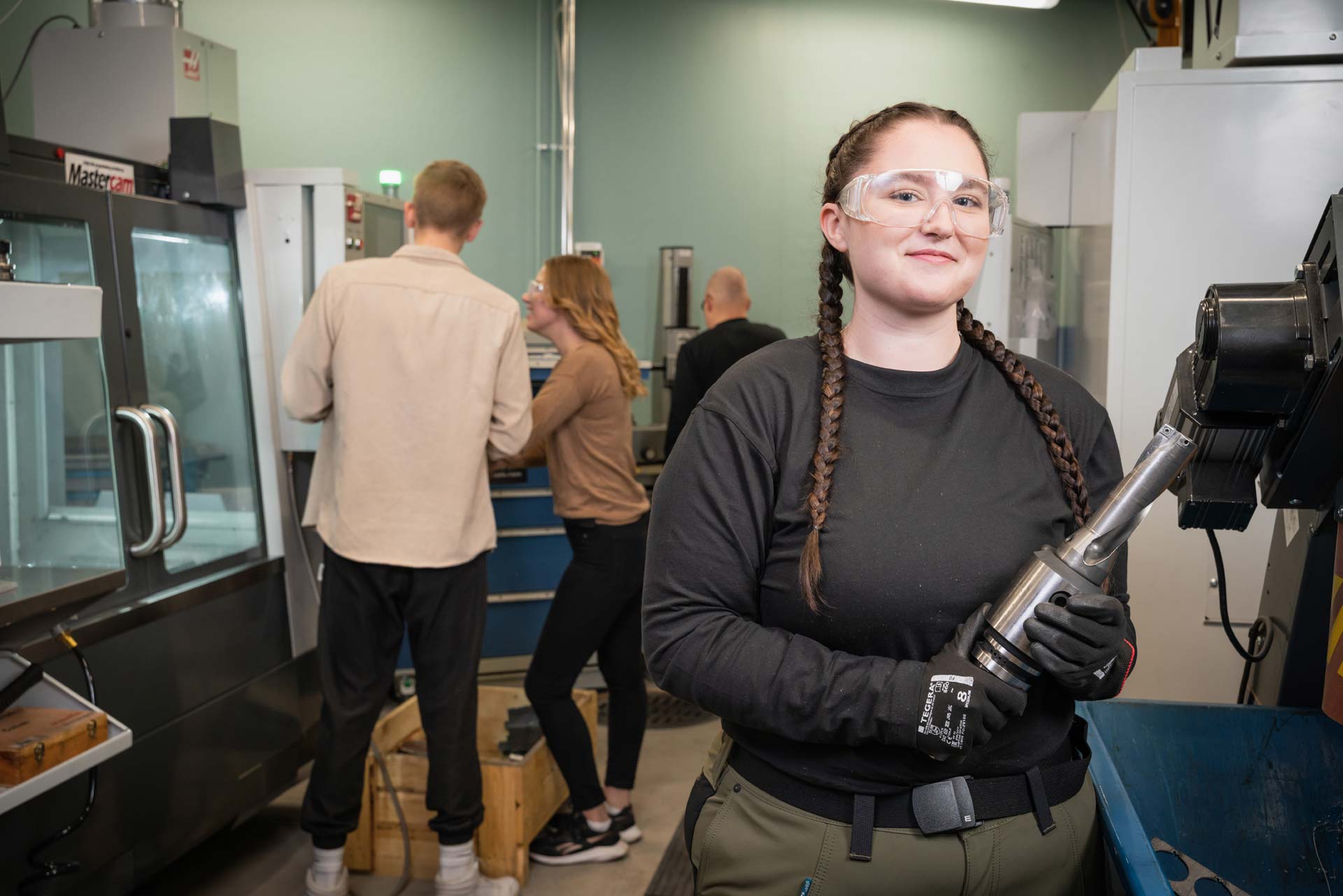
Industrial Management
Bachelor of Engineering
Become an international expert on Industrial Management!
NEXT APPLICATION PERIOD:
Autumn 2024 and 8-22 January 2025
Degree programme: Industrial Management
Degree title: Bachelor of Engineering
Duration: 240 ECTS, 4 years
Study mode: Full-time studies, on Campus
Study place: Varkaus Campus, Varkaus, Finland
Language: English
Annual intake: 45
The Bachelor of Engineering, Industrial Management programme develops highly skilled technology industry experts who also focus on service-oriented business and production in industrial framework.
The duties of an industrial management graduate fall within the fields of industrial engineering and business management. For example, supply chain management, project management, business operations, sales engineering, and other industrial-related activities. Graduates understand product-orientated and service-oriented business models and have the knowledge and skill to design new products and services, based on the customers’ needs.
Besides traditional engineering skills, Industrial Management students study Internet of Things (IoT). IoT studies give students an understanding of how to produce, store and analyze data and how to implement data to new products and business models. Data also gives an understanding of products’ life cycle. Graduating engineers are also familiar with environmental issues and Circular Economy (CE) and are able to consider these issues in decision-making. Students can also choose energy engineering courses in their curriculum and thus deepen their knowledge of sustainable energy technologies and industry.
In addition to acquiring industrial engineering know-how, an important part of the programme is developing leadership skills and international competence, learning how to operate effectively in a variety of interpersonal networks, and cultivating communication, social, teamwork, and problem-solving skills. The goal is to educate high-quality team players instead of individual autonomous workers.
Thanks to their excellent management and project management skills, graduated Industrial Management engineers can raise their business to the next level!
This programme has strong roots in the North Savo region. Engineers have been educated here since 1886. This means that the programme is highly networked with local businesses.
Complete this form and the student recruitment team will reply to you
Programme Highlights
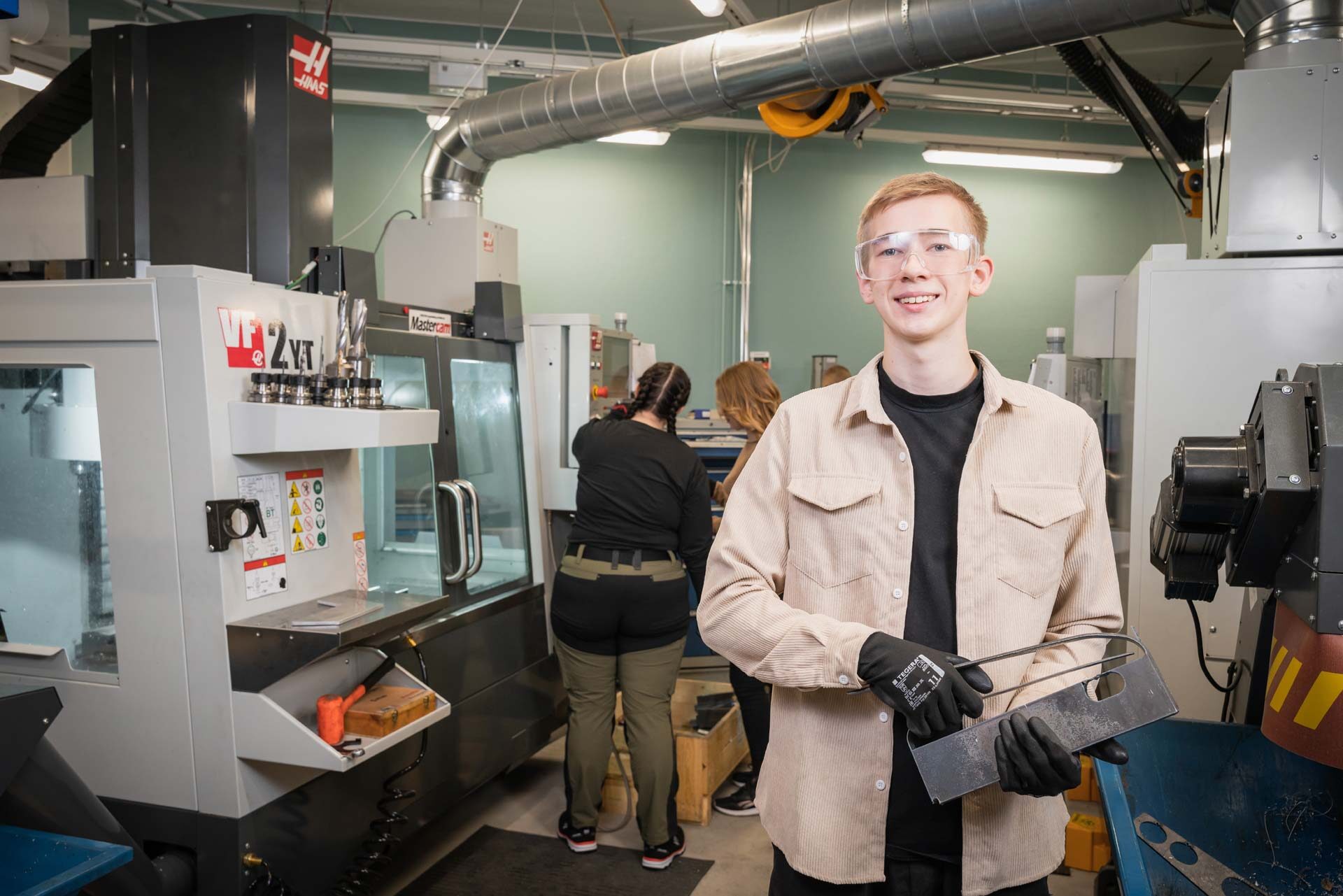
Internships
The programme includes 30 ECTS of practical training. During this time, students get to apply all of their acquired skills and knowledge in a specific firm.
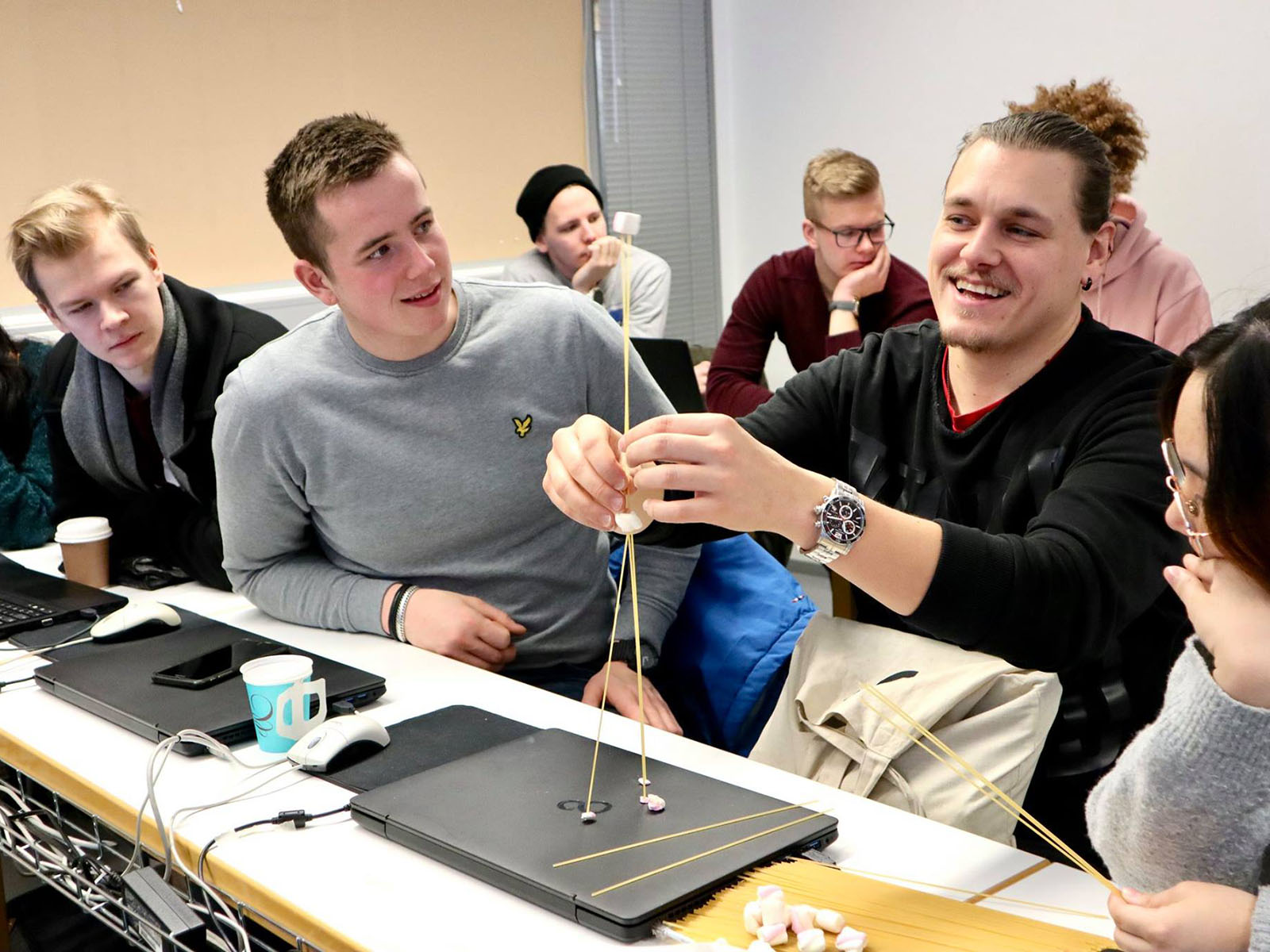
Multi-Disciplinary Projects
Industrial Management students can participate in multi-disciplinary projects along with students from the field of energy technology.
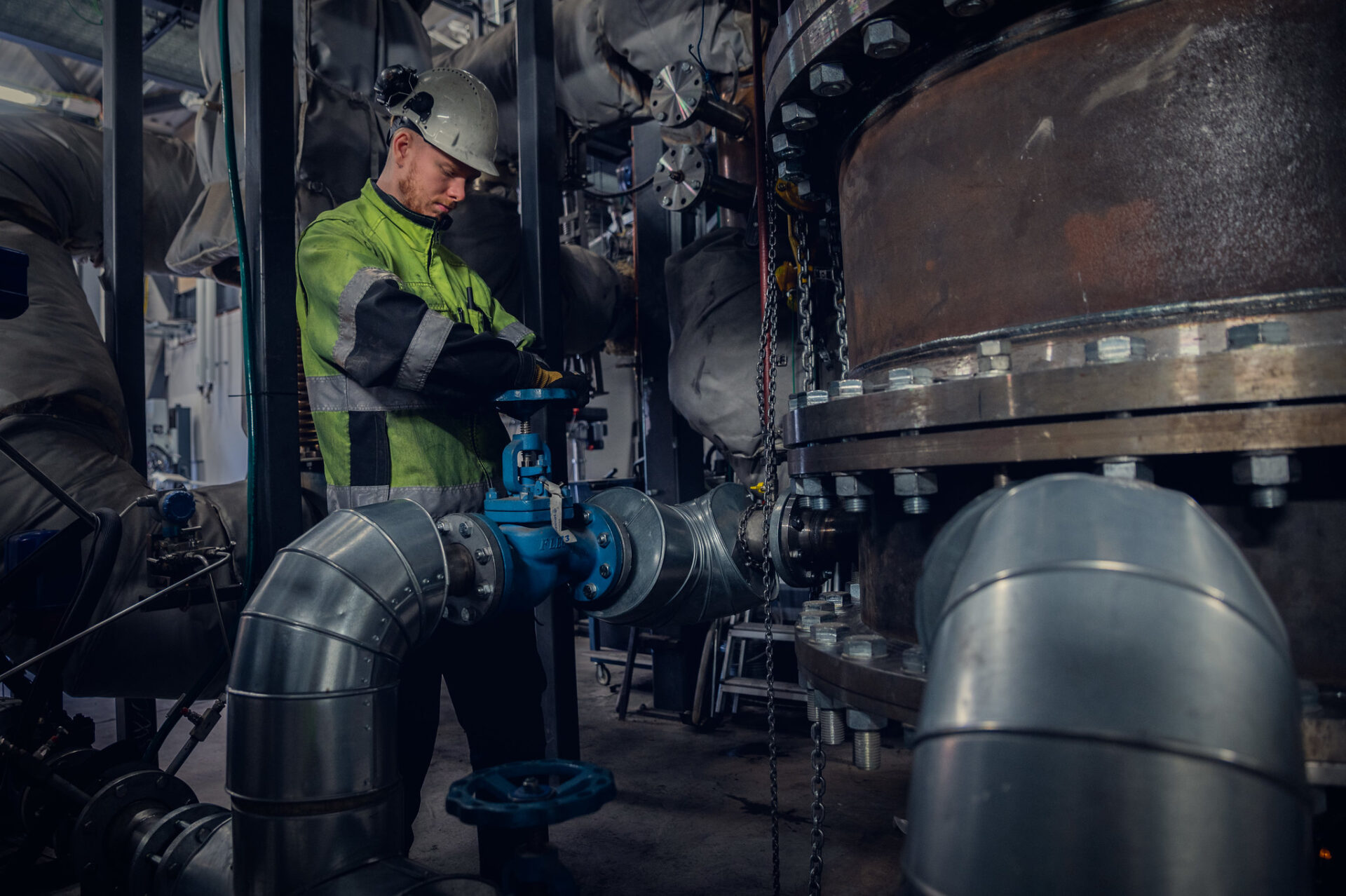
Energy Research Centre
The Energy Research Centre can serve as a learning environment for tailored corporate training. The Centre is located next to Varkaus Campus.

Cooperation with companies
Students get the chance to work closely with local businesses in different courses along their studies.
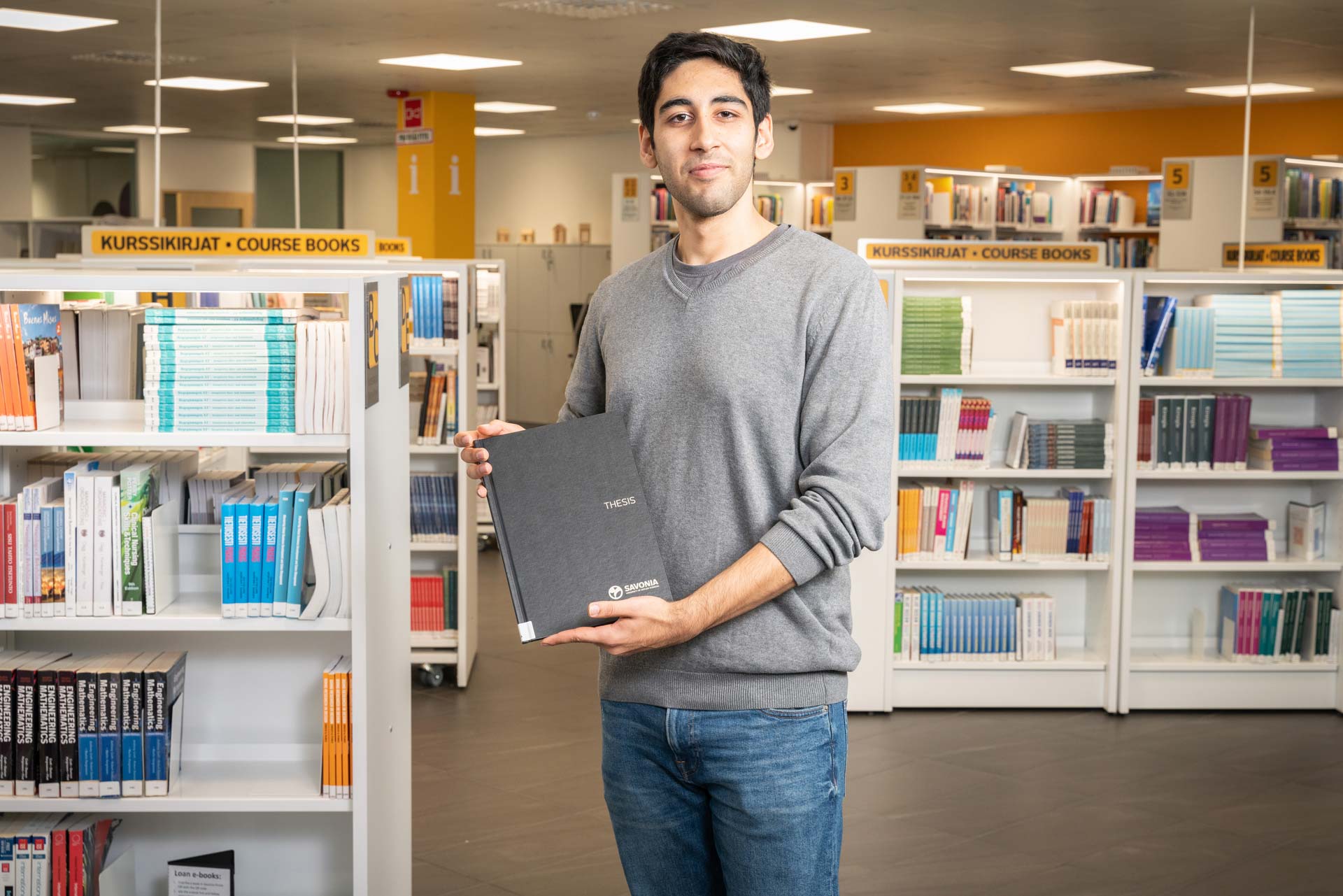
Thesis
An opportunity to explore on a deeper level a topic of your interest. The thesis is also the last project to complete before graduation!

Widen your perspectives
Study, live, and experience in a new country. Find your future career in Finland!
Focus areas
The Bachelor of Engineering, Industrial Management programme focuses especially on customer value in industrial framework, procurement management and Internet of Things, as well as Energy Technology, according to their choice.
Students will develop their professional skills also in project management, production management, maintenance planning, leadership, supply chain management and industrial service system.
Content of studies
During the studies, students gather the knowledge and skill on how to transform customers’ requirements into products and services. This is done by studying product-service system, Internet of Things and procurement management.
In addition, engineers need good basic skills and knowledge in mathematics, natural sciences, product design, product development and manufacturing technology. That is why these areas have a big role in the programme during the first and second year of studies. These areas provide a strong basis for professional competencies in Industrial Management.
Project management and project working skills are emphasized in the programme each academic year. Students learn the principles and methods of managing processes, projects and change. A typical study method in the Industrial Management programme is project work. In projects, students learn both engineering skills and real-life working life skills. They include, e.g., good interpersonal and communication skills required when working on global projects with people representing a wide range of nationalities and cultures. Simultaneously, students acquire skills in how to manage different types of networks which is also an essential skill for a future technology industry expert.
Programme structure
The degree consists of 240 ECTS. According to the curriculum, one academic year corresponds to 60 ECTS, which is equivalent to 1600 hours of a student’s workload. The study methods include, among others, contact lessons, distance and independent learning, e-learning, project work, and practical training (internships). Research and development activities can be some part of your studies.
The studies include basic, professional and specialisation studies. The internship is 30 ECTS and the Thesis is 15 ECTS. You can choose 15 ECTS of elective studies based on your own individual interests.
You can familiarize yourself with the content of the degree program by using the curriculum.
Language of instruction
The Industrial Management programme is fully conducted in English. Please note that you are expected to have sufficient English language skills to conduct your studies fully in English.
Studying in English and in a multicultural learning environment is the best way to prepare for the challenges and opportunities that worklife in engineering provides.
Learning the Finnish language
Finnish language is an inherent part of life in Finland and the Finnish culture. Although many Finns speak English quite well, Finnish is the main language of every day operations. Knowing the Finnish language can also be an important factor in finding employment in Finland.
Finnish language studies are integrated in the English-taught programmes. By improving your Finnish language skills yearly you can also get 10% extra scholarship for the next academic year.
Career possibilities
The degree programme qualifies engineers to work in high technology companies leading and managing international technology projects. The duties of an industrial management graduate fall within the fields of mechanical engineering and business management.
Possible job titles are:
- Project Engineer, Project Manager, Project Director
- Quality Engineer, Quality Coordinator, Quality Manager
- Purchasing Engineer, Purchasing Manager, Warehouse Manager
- Production Planner, Production Manager
- Development Engineer, RD Engineer
- Business Advisor, Consultant, Trainer, CEO
- Sales Engineer, Sales Manager, Marketing Manager
Cooperation
The technology industry is the most important business in the North Savonia region with its over 2 billion euros revenue and about 800 million euros of exports each year. In the region, there are 9000 directly employed employees and 13500 employees who are employed indirectly in the technology industry.
Many of the region’s businesses operate in international markets at the leading edge of their field of operation. Their core know-how is concentrated around commercial vehicles, such as state-of-the-art forestry equipment, mining and pile-driving machines, and in furnace and boiler technology in the field of energy technology.
The Industrial Management programme cooperates with the region’s industrial enterprises supporting their research, development and innovation work.
The internships, thesis and other project works conducted as part of the education represent the foundation for cooperation with these companies.
Working life feedback
“Technological leadership, global presence and sustainability are the cornerstones in all ANDRITZ does as an international technology group. Our customers need a wide range of innovative plants, equipment, systems, services and digital solutions. Even though our customers are very technology oriented, the success is based on well-managed projects, delivered by our talented personnel in 280 locations around the globe.
Therefore, ANDRITZ sees the availability of highly skilled personnel as an essential element in our existence. As our presence in Finland is very strong with more than 1500 employees, we see the co-operation with local schools and universities as an absolute necessity. ANDRITZ has had a very deep relationship with Savonia throughout the years in terms of different R&D projects, trainee programs, student projects, lecture visits, thesis works and, in that way, opening the window to a multicultural industry.
A large percentage of our staff in fact have a degree from Savonia and we see the studies there match our skill needs very well. Savonia’s Industrial Management study program is a perfect reply to our search for project personnel as the degree gives a solid basis and tool pack for starting an international career in an industrial business environment.”
Timo Rastas, Manager Procurement / ANDRITZ Oy
Internationality
Our Bachelor of Engineering groups are multinational and multicultural by nature, so you will get accustomed to an international work environment from day one. In addition, the Bachelor of Engineering programme itself is designed for internationalisation. Close cooperation with our international partners brings you in contact with people and organisations outside Finland, making it possible for you to compare views, share knowledge and work side by side on projects by using technology-based communication tools as well as meeting in person.
Student exchange is also a natural and recommended part of the studies, and internships (basic and/or professional) may take you anywhere in the world.
Multicultural study groups provide a good basis for your personal experiences in all aspects of internationality. For students outside Finland, learning Finnish has a key role in entering Finnish community and maximizing the opportunities in working life.
Thesis
The thesis at Savonia is always work-related. This gives you a good opportunity to network with professionals in your field already during your studies, and often the thesis turns out to be a starting point for your career.
The thesis includes the cooperation between you, working life and the Savonia University of Applied Sciences – from choosing the topic to set the goals and actually doing it. During the process, you show that you can work independently in recognising, evaluating and solving developmental challenges in working life. Professional reporting and communication skills are required as well.
Your work-related thesis can be:
- A developmental project, which you or your team plan and implement based on the requirements of your client. Examples of such a project include product or service development, work-flow development and information material development such as a guide or manual.
- A research-oriented project, where you or your team will perform appropriate research activities to shed light on the developmental or problem-solving needs of your client.
- A compiled thesis, where projects, research or scientific articles done during the studies are gathered together and reported as a synthesis.
Your thesis process will be supported by business research studies, thesis seminars and methodology workshops. You can do your thesis independently or in a group.
Possibilities to continue studies after graduation
A Bachelor of Engineering degree is an internationally recognized and approved qualification. A Bachelor of Engineering graduate is eligible to apply to continue theoretical studies at most universities across the world. Often the following Master’s degree can be completed in 2 years, depending on the field of study and the student.
However, should you wish to continue your studies to the Master level at the Savonia University of Applied Sciences, you will be directed to start your working career to gather two years of work experience before entering a Master’s programme.
Research
Savonia’s research and development work is shown to students in everyday life via the project and thesis work. Research is important to Industrial Management and is undertaken in collaboration with enterprises and other organizations.
Meet your teachers:
Mr. Kari Kokkonen
Senior Lecturer
kari.kokkonen@savonia.fi